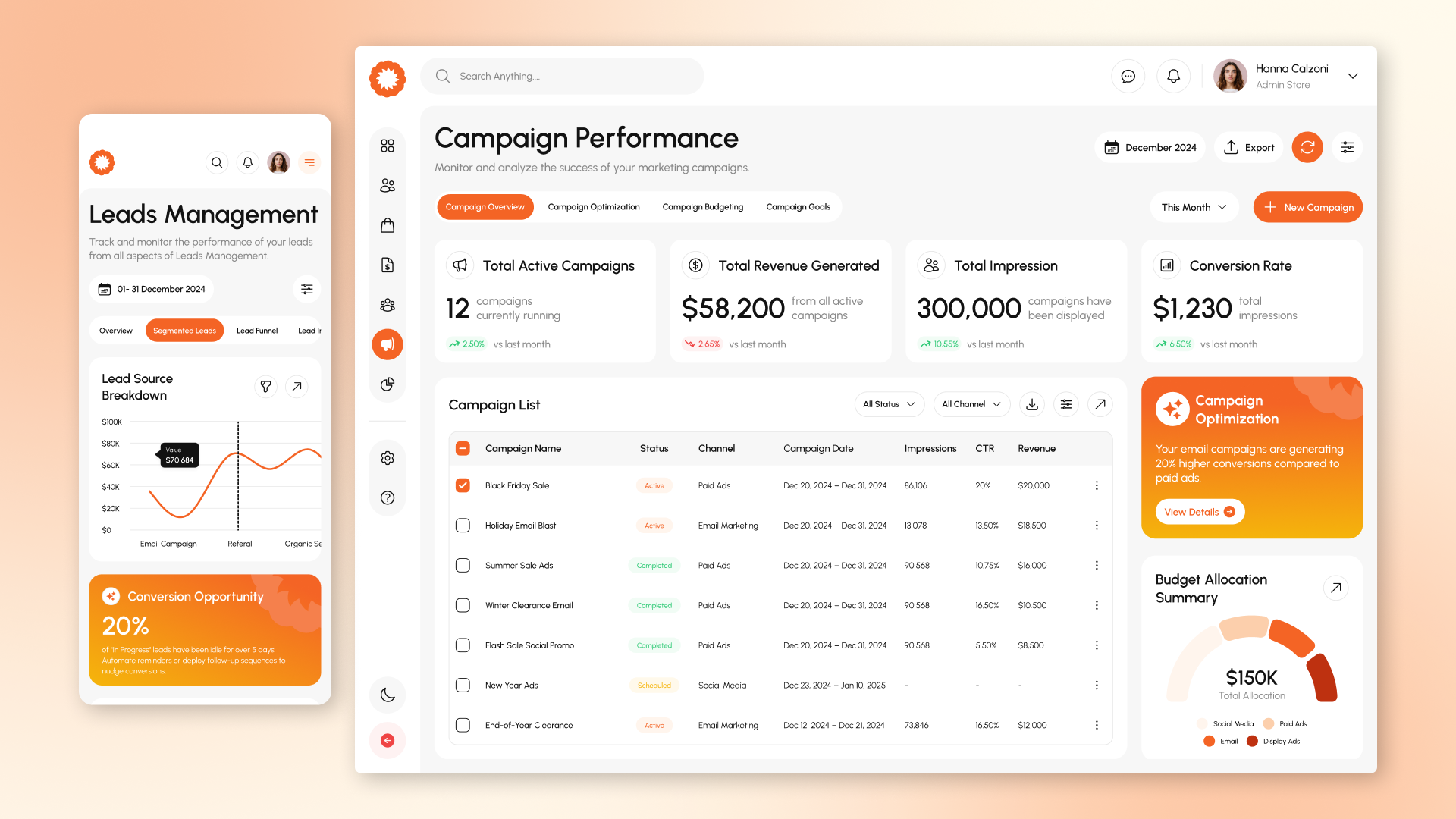
Marketing is the art of influence, where without a clear structure and analytics, even the most brilliant idea will lead to senseless budget spending. Modern technologies allow marketers not only to create creative and bright campaigns, but also to quickly make decisions based on data, manage budgets and advertising campaigns in real time, and scale successful strategies. That is why a marketing management system at the enterprise and in digital agencies is a must do.
At AVADA MEDIA, you can order the development of a CRM Marketing system and adaptation of existing solutions. Marketing automation with CRM allows you to reduce time on routine processes, optimize advertising budgets, and create effective sales funnels. With us, the implementation and scaling of an online advertising management system is quick and efficient, taking into account the unique business processes of your company.
A marketing automation system helps organize the work of digital agencies and internal marketing departments of companies in such a way as to:
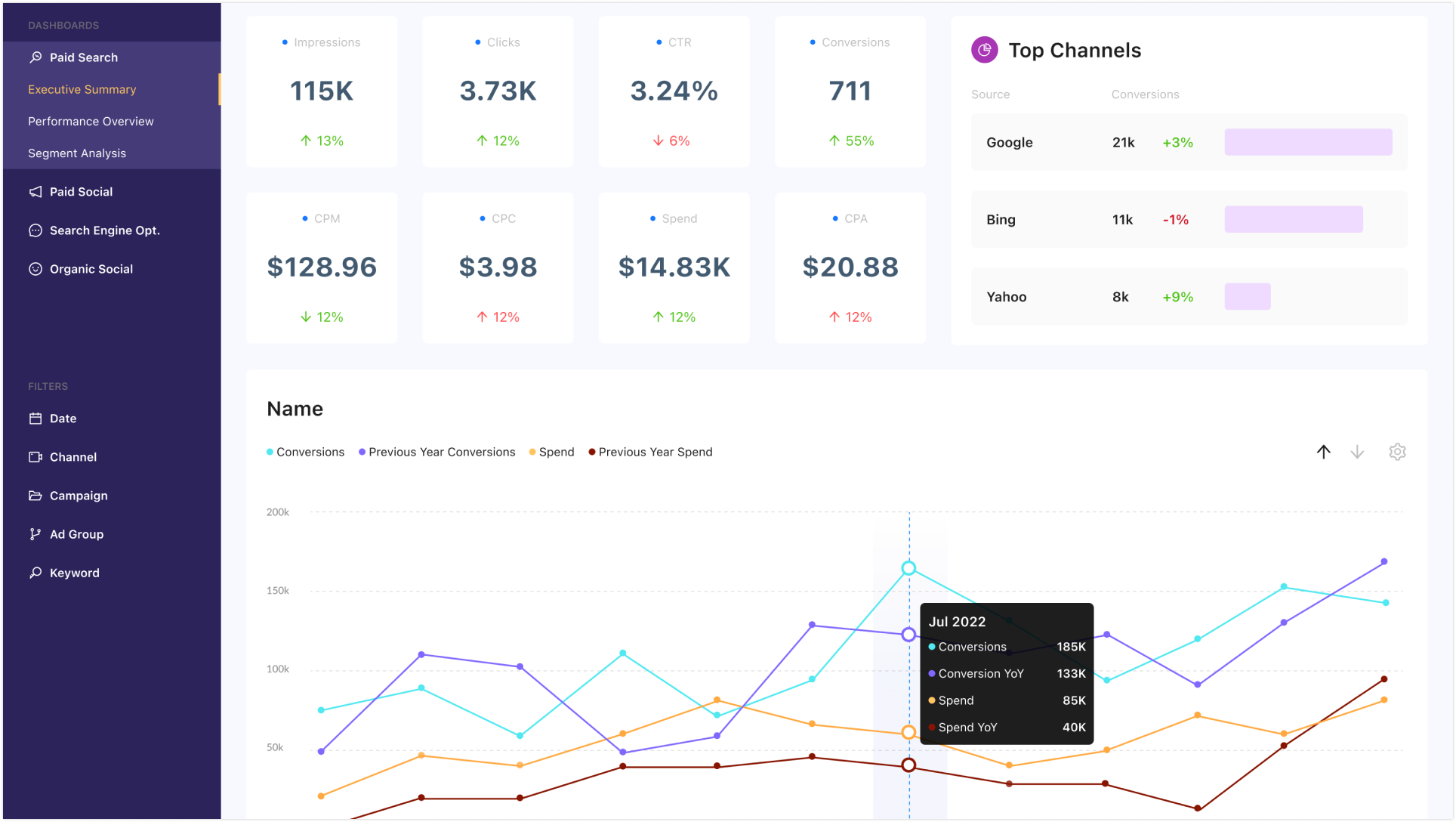
Not only advertising agencies need automated marketing management, CRM is relevant for a wide variety of business areas where they strive to effectively manage advertising and improve interaction with customers.
Custom CRM for marketing should go far beyond the basic functionality and cover the entire marketing cycle: from campaign planning to results analysis. Let’s consider the key functions of an individual marketing program that allow marketers to act faster, more accurately and more effectively.
Individual development of a CRM system for marketing provides wide integration opportunities. This allows you to minimize manual labor and errors during data transfer and significantly speed up decision-making. A custom management system for a marketer can be synchronized with the company’s existing ERP, accounting and other business programs to create a single information space and provide centralized management of all marketing activities.
Seamless integration with Google Ads, Facebook Ads, TikTok Ads, Instagram, LinkedIn and other advertising networks allows you to centrally manage campaigns and receive end-to-end analytics. You can import data on clicks, conversions, and real-time costs, conduct A/B tests, launch campaigns, and control your budget all within one program.
Integration with Mailchimp, SendPulse, SendGrid, ActiveCampaign, and other services provides effective email management, automatic segmentation, trigger chain setup, and conversion/click tracking.
Integration of the management system with Google Analytics, Power BI, Tableau, and other platforms allows marketers to obtain data on user behavior and the effectiveness of marketing activities. With this program, you can build reports based on custom metrics, such as cost per lead broken down by geo, category, and device.
Thanks to integration with Facebook, Instagram, Twitter, LinkedIn, and other social networks, marketers can conveniently manage posts, monitor mentions, and comments.
Synchronization with popular messengers (Telegram, Viber, WhatsApp) automates communication with customers and allows you to provide prompt support.
Connecting to an IP telephony system allows you to track customer calls, record conversations, and analyze their effectiveness.
Standard reports are not suitable for everyone: some work on ROAS metrics, others on CPL, and still others on LTV and CAC. To make informed decisions and optimize strategies, individual CRM for marketing allows you to create flexible dashboards and reports tailored to specific business tasks:
Marketing is not only about generating leads, but also about supporting the customer from the first click to the repeat purchase. Your own CRM system for advertising and marketing allows you to build automated sales funnels, where each step is carefully thought out:
One of the main reasons to order CRM development for marketing and advertising from scratch is the ability to take into account all the features of your business and marketing. For example:
Modern marketing is impossible without structured data. CRM systems for marketing can have powerful analytical functionality that makes it possible to implement the Data-Driven approach in practice:
A CRM system for marketing can become not only a data repository, but also a center for coordinating the work of the entire team. This is especially important for agencies and internal departments where copywriters, designers, targetologists and managers work on projects simultaneously.
With a CRM system, a marketer can:
Content is the basis of most marketing strategies. And here CRM can take control of the entire life cycle of promotional material – from setting a task to analyzing its effectiveness. As part of content management, CRM can perform the following functions:
A CRM system for marketing helps track budgets, control costs and increase the effectiveness of investments. With an individual program, a marketer receives:
Modern marketing is no longer possible without personalization. In CRM, you can adapt each action to a specific client:
CRM can centralize all lead generation channels, including capture forms, quizzes, advertising platforms and partner networks. The functionality includes:
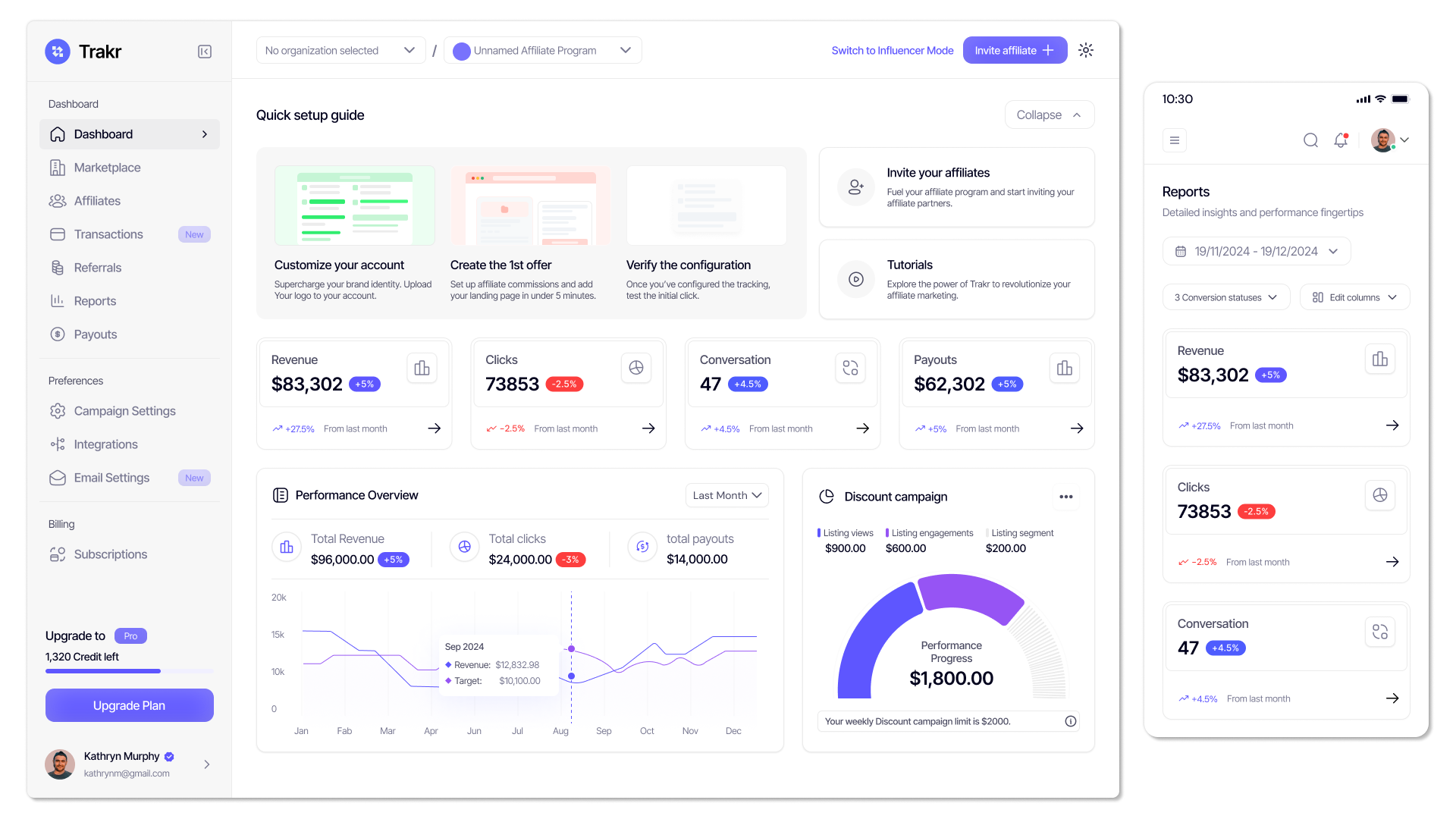
Automation of an advertising agency and marketing department will become a powerful engine for business growth and development. Let’s take a closer look at the benefits that a marketer gets from CRM.
Centralized data storage and management
CRM in marketing combines all customer data, advertising campaigns, analytics, and reports in one place, simplifying decision-making and ensuring transparency of processes.
Creating a single information space
CRM Marketing system provides access to up-to-date and reliable information, combining data from different sources into one system. Integration with advertising platforms (Google Ads, Facebook Ads, Instagram, TikTok, email services) allows you to manage all advertising campaigns through a single interface.
Analytics and forecasting
Marketing automation software collects and analyzes data on customer interactions, advertising effectiveness, and behavioral factors, helping to predict future trends and adjust marketing strategies.
Process automation
CRM for advertising agencies automates routine tasks: audience segmentation, trigger mailings, retargeting, managing advertising budgets and multi-channel advertising campaigns.
Personalization
A CRM system in marketing makes it possible to track each stage of interaction with a client – from the first contact to repeat purchases and recommendations. Thanks to segmentation and AI-analytics, the program helps to form personalized offers, significantly increasing audience engagement and conversion.
Optimization of advertising budgets
CPM in advertising helps to analyze the effectiveness of various channels, allowing you to rationally allocate the budget in favor of profitable strategies.
End-to-end analytics
By receiving data from all advertising channels (contextual advertising, social networks, email mailings, offline advertising), CRM for an Internet marketing agency provides a comprehensive analysis of campaign results as a basis for making informed decisions.
Improved service
CRM systems in marketing and advertising help to track the full history of interactions with customers, better understand the needs of your audience, process requests in a timely manner, effectively retain customers by creating individual loyalty programs and strengthening relationships.
Scalability and flexibility
Individual development of CRM for marketing and advertising makes it possible to adapt it to changes in business processes and marketing strategies or to scale it.
Data control and security
Marketing automation with CRM provides protection against data leakage and unauthorized access using modern security and privacy technologies.
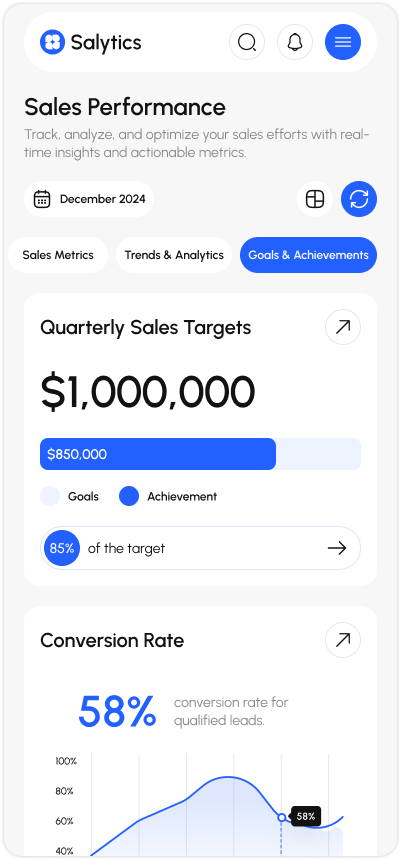
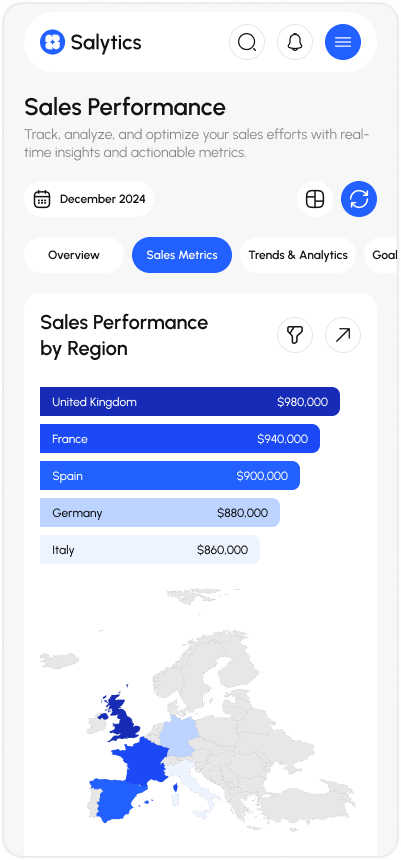
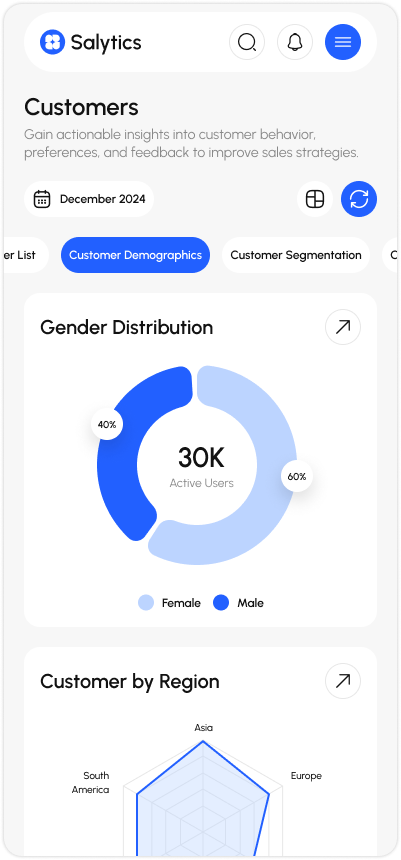
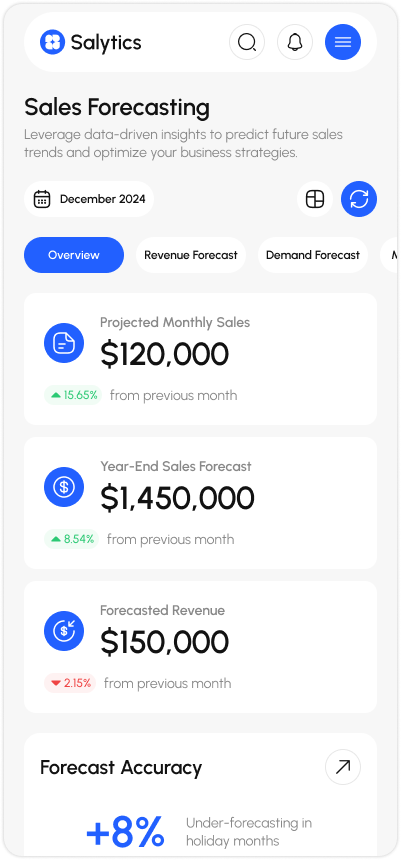
Mobile CRM system screens for marketing
Analysis and definition of goals
Before developing a CRM for a marketing agency or department, analysts study the client’s business processes, determine the needs and goals of advertising automation. Analyze tools for communicating with customers, managing advertising campaigns and analytical data.
Technical specifications
The technical specifications describe in detail the functional and non-functional requirements for CRM for marketing and advertising: modules, integrations, visual style, security and performance.
Design and prototyping
Create the application architecture, develop the database structure and interfaces. Using tools such as Moqups, Figma or Adobe XD, prototypes are created to visualize work scenarios. It is important that the management is intuitive and accessible.
UX/UI design development
At this stage, designers develop an attractive and user-friendly CPM design for an advertising agency that provides quick access to key functions, matches the company’s visual style, and adapts to different screen sizes and devices.
Application development
Programmers create code consisting of frontend and backend parts, configure integrations with external platforms. For the frontend, React or Vue.js is used, which allow you to create dynamic and easily scalable interfaces. For the backend, technologies such as Node.js, Python or PHP and PostgreSQL or MySQL databases are used. It is important to create clean code, ensuring high performance and scalability of the system.
Testing
QA testers comprehensively check the system’s performance and compliance with customer requirements. They conduct functional, integration and load testing, as well as usability assessment. Before launching, it is important to make sure that all functions work stably and correctly.
Release and implementation
After successful testing, the management system is deployed on the client’s server or in cloud storage. At this stage, a smooth transition to the new application is ensured with minimal risks and downtime for current processes. It is imperative to train employees to work effectively with the application.
Project Support and Development
To quickly resolve the main problems in CRM marketing, after launch, technical support of the system, monitoring of performance, implementation of new features, updates are required. The program grows in parallel with changing business needs and market conditions.
If you need marketing automation, you can order CRM for a digital agency or marketing department from AVADA MEDIA. You will receive an individual solution tailored to your business goals, with flexible settings for managing advertising campaigns, leads and analytics. Our specialists create CRMs for advertising production that help achieve high payback and integrate with leading advertising platforms. Experienced specialists work on projects, creating reliable, convenient and scalable tools that can adapt to market dynamics and manage budgets competently.
How does CRM for marketing help personalize advertising?
With CRM, advertising works more effectively, as the program analyzes user data, segments the audience and automatically selects relevant offers.
Can you test advertising creatives in CRM?
You can run A/B tests directly in the program if it is integrated with advertising platforms. And you can also automatically collect statistics for each option: CTR, conversions, cost of lead.
Will CRM help you launch advertising campaigns faster?
Process automation, campaign templates, built-in calendars and auto-funnel scripts allow you to launch campaigns 2-3 times faster than when manually managed with standard tools.
Is CRM suitable for working with UTM tags and tracking their effectiveness?
An individual CRM system can automatically recognize and store UTM tags from each lead, and then generate reports by sources, campaigns and keywords.
Can CRM be used to track offline advertising effectiveness?
Yes, if you set up unique phone numbers, promo codes, or QR codes for offline sources, CRM will record calls and link them to offline activities. You will see real ROI even for outdoor advertising, radio, or TV.
Does CRM help manage influencer advertising?
The management system can be used to track results for each blogger: tracking leads, sales, mentions, as well as analyzing engagement and calculating CPL/CPA. In addition, the system conveniently stores contacts, media kits, and history of interactions with influencers.
Is CRM suitable for content marketing?
A custom management system helps plan, automate, and analyze the effectiveness of content strategies.
How much does it cost to order CRM Marketing?
The cost of the development service depends on the functionality, integrations, and complexity of the project. We offer customized solutions that pay off quickly.
What are the terms of CRM development?
Development can take several months – from 5 and more, depending on the scope of tasks, the number of integrations and the specifics of the business.
How does a custom management system differ from ready-made solutions?
Ready-made solutions are universal, but they do not take into account the specifics of the business. Individual systems adapt to your processes, they are as efficient and flexible as possible.
Is it possible to develop a banner advertising management system?
Yes, the program can be adapted to manage banners – automatic placement and analysis of their effectiveness.
Is it possible to develop a CRM for network marketing?
Yes, the marketing program can be used to automate interactions with partners and manage multi-level structures.
Our works
Contact the experts Have a question?
Developed by AVADA-MEDIA™
The user, filling out an application on the website https://avada-media.ua/ (hereinafter referred to as the Site), agrees to the terms of this Consent for the processing of personal data (hereinafter referred to as the Consent) in accordance with the Law of Ukraine “On the collection of personal data”. Acceptance of the offer of the Consent is the sending of an application from the Site or an order from the Operator by telephone of the Site.
The user gives his consent to the processing of his personal data with the following conditions:
1. This Consent is given to the processing of personal data both without and using automation tools.
2. Consent applies to the following information: name, phone, email.
3. Consent to the processing of personal data is given in order to provide the User with an answer to the application, further conclude and fulfill obligations under the contracts, provide customer support, inform about services that, in the opinion of the Operator, may be of interest to the User, conduct surveys and market research.
4. The User grants the Operator the right to carry out the following actions (operations) with personal data: collection, recording, systematization, accumulation, storage, clarification (updating, changing), use, depersonalization, blocking, deletion and destruction, transfer to third parties, with the consent of the subject of personal data and compliance with measures to protect personal data from unauthorized access.
5. Personal data is processed by the Operator until all necessary procedures are completed. Also, processing can be stopped at the request of the User by e-mail: info@avada-media.com.ua
6. The User confirms that by giving Consent, he acts freely, by his will and in his interest.
7. This Consent is valid indefinitely until the termination of the processing of personal data for the reasons specified in clause 5 of this document.
Send CV
Contact us in any convenient way for you:
+ 38 (097) 036 29 32